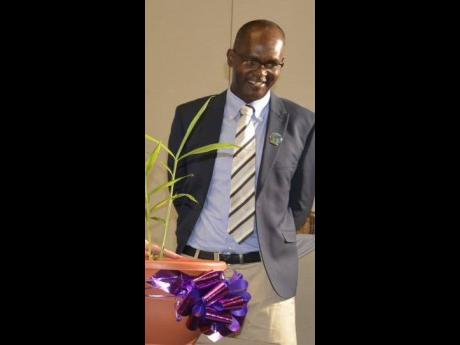Hold us accountable, Dr Ronald Blake urges Jamaicans
CHIEF OF party for the United States Department of Agriculture Food for Progress Jamaica Spices project, Dr Ronald Blake, has challenged journalists and the Jamaican public to hold his organisation accountable for delivering on the stated objectives of their five-year initiative.
The recently launched project is designed to revitalise the spice sector to meet the export and domestic demand for turmeric, ginger, and pimento, and is projected to result in a more diversified, inclusive, sustainable, and climate-resilient spice sector.
In his remarks at the launch at the AC Hotel by Marriott on Lady Musgrave Road, St Andrew, Dr Blake departed from his prepared script and threw out this challenge.
“I see my friends from the media and I know the story gonna be coming out in a little while. I want the rest of Jamaica to hold us accountable around these metrics,” he stated. “I want you to hold us accountable. So at the end of five years I want you ask, ‘Have you in fact impacted 7,500 partners within the value chain?
“I also want you to ask us to show the evidence that we have established 2,250 hectares of pimento, ginger and turmeric?”
The initiative, which is being funded by United States Department of Agriculture, is aimed at supporting 7,500 farmers and agricultural market systems actors, including women, youth, and other marginalised groups. This is to create a more diversified and vibrant spice sector and contribute to a 50 per cent increase in ginger, turmeric, and pimento through improved planting material and management practices.
In his Sectoral presentation in May, then Minister of Agriculture and Fisheries, Pearnel Charles Jr, underscored the need for such an initiative. He noted that while the global spice demand for use in food, seasonings, cosmetics, pharmaceuticals and nutraceuticals continues to grow, Jamaica had been unable to cash in on this lucrative market.
“Falling production volumes and rising prices are leading overseas spice buyers to source ginger, turmeric and pimento from other countries,” Charles admitted.
This was despite an increase in the harvesting of pimento of 338,819 kilograms, a 234 per cent increase over the 101,300 kilograms reaped the year before. Of this amount, 276,482 kilograms was exported at a value of U$S2.4 million with local sales of J$34 million.
Ginger production also recorded a 25.8 per cent increase over the previous year, as a result of several initiatives to rapidly produce and distribute clean seedlings to farmers. In fact, Charles Jr had announced that the Jamaica Agricultural Commodities Regulatory Agency (JACRA) had started production of grafted pimento plants in a bid to repopulate over 500 acres.
“This will enable a shorter period to commercial production from 5-7 years to 2-3 years,” he explained.
Meanwhile, Dr Blake said that the project, which will involve the JACRA, Rural Agricultural Development Authority and the Ministry of Agriculture, Fisheries and Mining, will lead to a stronger spice sector and recognition of Jamaican spices around the globe.
The projection, he said, is for the project to achieve and maintain a commercial value of just over US$20 million, with US$14.5 million of this being export sales.
“In pursuit of this, there are two strategic objectives that must be achieved,” he declared. “We have to increase production and productivity of the spices and you also have to improve trade in the quality of the spices so we can meet international standards. That is going to make us not only a premium product but extremely competitive.”

